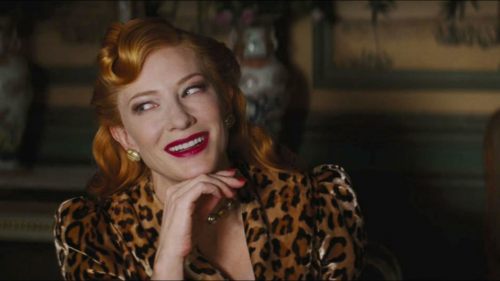WHERE’D YOU GO, BERNADETTE Review: Achievements In Architecture And Adaptation
Maria Semple’s best-selling novel Where’d You Go, Bernadette was always one of those books that I found interesting from a thematic standpoint but lacking in execution. Locked to the perspective of a teenage girl as she investigates the past and present of her recently missing mother, the novel always felt to me like a character study that was restricted to a lens that didn’t quite fit the scope of the titular Bernadette, turning the story of a larger-than-life character into an unnecessarily plodding investigation that relied on contrivance to justify its framing device. However, when I saw the trailer for Richard Linklater’s adaptation of the novel, I noticed a lot of shots of Cate Blanchett’s Bernadette in scenes that are only alluded to in the novel, which gave me hope that some restructuring took place in bringing this story to the screen. And wouldn’t you know it, Linklater has transformed Where’d You Go, Bernadette into the superior version of itself. Not without a few growing pains, mind you, but it’s still amazing how much the film turned out to be exactly what I wanted from the book.
Instead of portraying events anachronistically as in the novel, the film version of Where’d You Go, Bernadette opts to start at the beginning, or at least in so far as the beginning takes place five weeks prior to the book’s inciting disappearance. The antisocial Bernadette lives in Seattle with her tech genius husband Elgin (Billy Crudup) and her smart, empathetic teenage daughter Bee (Emma Nelson). She spends her days around the house, sending rambling voice-to-text messages to a personal assistant based in India that are as much complaints about her waspish neighbor (Kristen Wiig) and her husband’s inappropriately thirsty personal assistant (Zoë Chao) as they are about her increasingly eccentric domestic and shopping needs. However, when Bee suggests the family take a cruise to Antarctica as a going-away present before she goes to boarding school, Bernadette’s anxiety in anticipation for the trip reaches unmanageable levels, causing Elgin some concern as Bernadette’s denial of any problem grows in equal measure.
Cutting out the investigative framing device and pushing Bernadette’s disappearance to the end of the second act does create some messy moments early in the film that require rescue from expository voiceover narration by Bee, but the tradeoff is that we get to see a natural escalation to Blanchett’s portrayal of a complex, brilliant woman on the perpetual brink of mental breakdown. Whether she’s being dismissive of the bitch next door’s nosy request to clear out her blackberry bushes, debating with her pharmacist over whether she should be combatting seasickness with drugs used in Russian gulags for torture, or gaping wide-eyed at a YouTube documentary about her cut-short architecture career, Blanchett delivers a performance that is both hilarious and heart-breaking and thankfully never treats Bernadette herself as the butt of the joke. Linklater recognizes the fine line between an unstable person reacting poorly to other people equally in the wrong and making the unstable person herself the punchline, and though Bernadette’s actions are extreme to a sometimes fantastical degree, there’s an underlying respect for what she’s going through implicit in how she is framed. As the reasons for her behavior come into focus, the absurdity of it all starts to feel a little bit less so.
Blanchett is well complemented by her supporting cast, as Crudup’s portrayal of Elgin’s mounting concern reveals a man with more regrets than even he realizes, Wiig’s take on the one-note neighbor character exhibits surprising depth in a late scene, and Nelson proves herself to be a young actress to pay attention to, as Bee’s empathetic goodness could have been sickeningly overwrought as written, yet Nelson plays her with just enough hormonal angst to allow the character to feel layered. And with Richard Linklater being Richard Linklater, the scenes the hit the hardest emotionally and will stick with you the longest are the ones where the characters simply spend time with one another, singing along to a song on the radio or talking about the appeals and pitfalls of an Antarctic cruise. Though I personally tend to prefer Linklater within the confines of more plotted narratives, it’s the moments where these characters get to breathe and simply exist for a second that serve to remind why exactly people watch Linklater movies.
Where’d You Go, Bernadette is a film that works on you over its runtime. As you grow to love Bernadette for all her eccentricities and come to understand the life she’s led, you also learn to love the people in her world and realize what a powerful force love can be in binding people together, even in the worst and most inexplicable emotional turmoil. Bernadette’s tragedy isn’t violent or traumatic and is premised on a certain amount of privilege, but in its context it is a tale of lost potential and reclamation of self that anyone who has ever lost their way can relate to. The novel may have been a shaky foundation upon which to build, but Richard Linklater has built a film worth living in.



